Sometimes, the only way management learns their rules don’t always work is by seeing what happens when those rules are followed to the letter.
This Redditor got scolded by his manager for letting a restaurant employee park in a customer-only spot—just once.
So when the owner’s daughter showed up next time, he made sure she followed that same rule to a T. “Sorry, customers only.”
Scroll down to see how that decision played out and what kind of karma came with it.
The worker was told to strictly follow the rule: only customers could park at the restaurant

Image credits: Getty Images (not the actual photo)
So he made sure the owner’s daughter followed it too
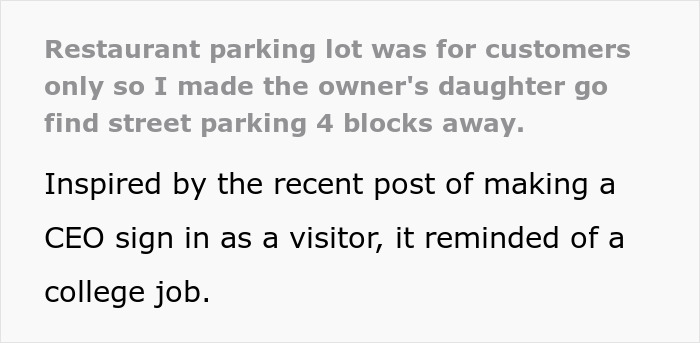
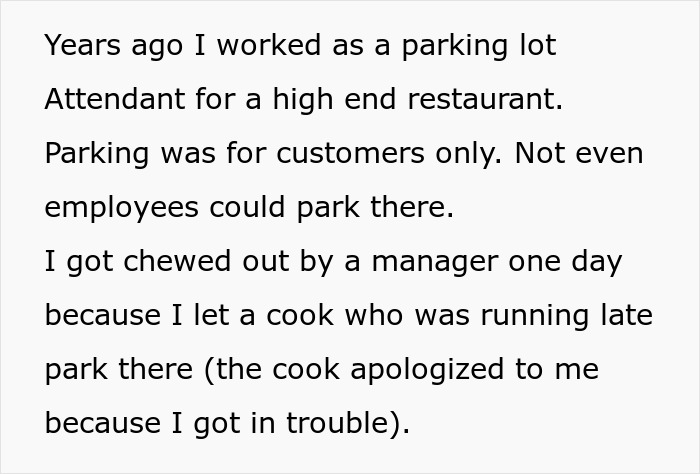

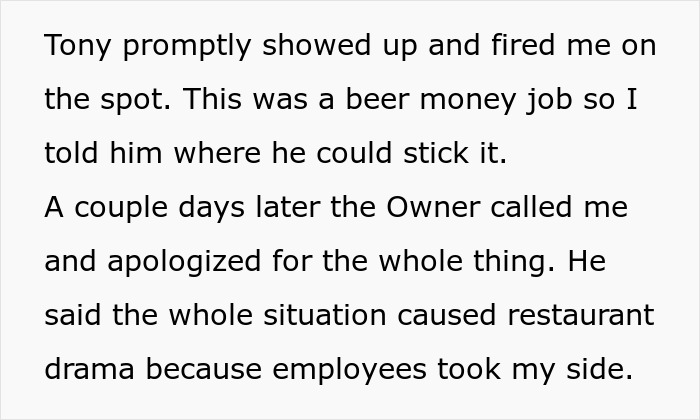




Image generated by Bored Panda using ChatGPT
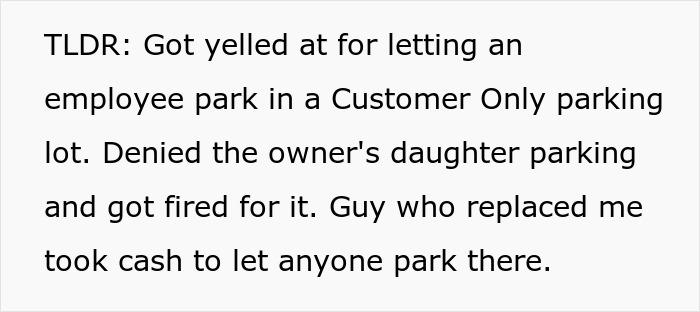
Image source: TempleFugit
How to cope when your employer has stupid rules

Image credits: Getty Images (not the actual photo)
When your workplace enforces odd or frustrating rules, it often feels like there’s no real option but to follow them, especially when your job security is on the line.
Most people just vent to coworkers or quietly complain, but that rarely changes anything… except your stress levels.
But it doesn’t always have to be that way.
Former Forbes contributor and career coach Liz Ryan has shared practical advice for handling questionable workplace rules. Here are some of her most useful tips:
1. Speak up when something doesn’t make sense
If you come across a confusing or outdated policy in your company handbook, don’t be afraid to ask about it.
Ask your manager for clarification, not in a confrontational way, but with genuine curiosity. Sometimes, simply raising a question is enough to make people realize a rule no longer makes sense and should be scrapped.
Of course, that’s not always the case. Some people stick to bad rules purely out of habit. Still, it’s worth trying.
2. When appropriate, break the rule
Some rules are just asking to be broken. Carefully.
It should go without saying: don’t break the law, compromise safety, violate regulations, or mess with anyone’s money. But outside of that?
“Beyond that, rule-bending is a principal way that bad rules eventually get changed. It is time for a lot of dusty workplace rules (rules barring tattoos, fussy dress code policies, requiring doctors’ notes when people are sick, etc.) to go extinct,” says Ryan.
Sometimes, taking a thoughtful stand is what sparks change.
3. Don’t go it alone
Having your manager’s support can make a huge difference, but if that’s not possible, consider finding allies.
Gather a few like-minded coworkers, create a clear proposal, and walk HR through your ideas together. It’s harder to ignore a team than a lone voice.
4. Offer a better alternative
Pointing out that a rule is flawed might not be enough to change it, but offering a smarter solution? That’s much more effective.
Take time to think through what would work better and make sure your idea is realistic, fair, and easy to implement. The more solid your suggestion, the harder it’ll be to dismiss.
5. Know when it’s time to move on
If you’ve tried everything and still aren’t being heard, that might be your sign to look elsewhere.
“A company that runs by ancient, petty rules is not a place for a brilliant person like you to waste any more time in,” says Ryan.
When the culture doesn’t allow growth or change, it may be time to create an exit strategy and find a workplace that values your voice.
Readers chimed in with similar experiences




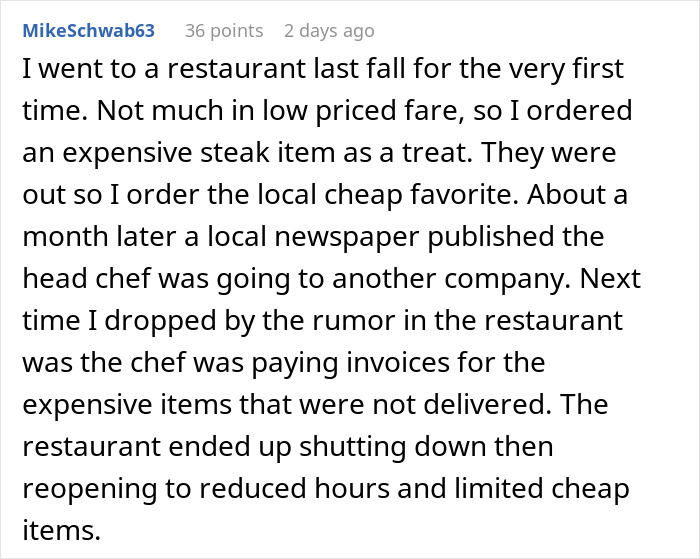
Many applauded how the author handled the situation
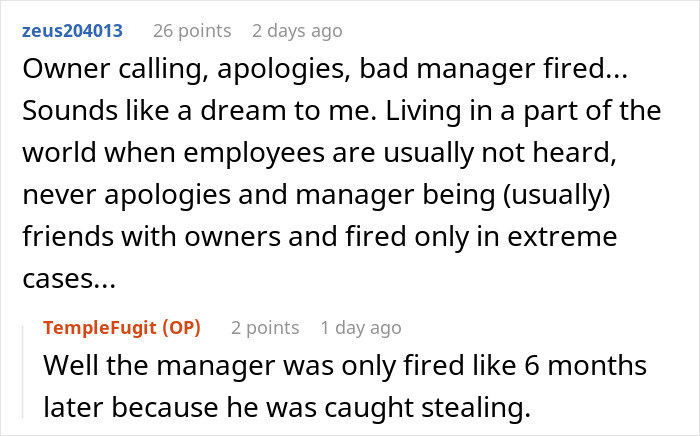











But some felt he went too far

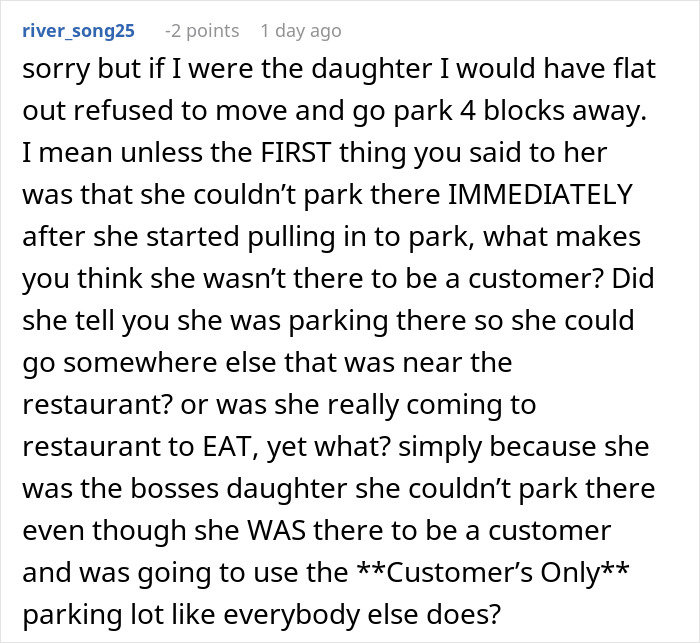
from Bored Panda https://ift.tt/319whYd
via IFTTT source site : boredpanda